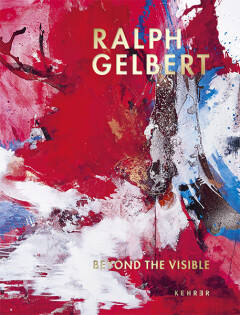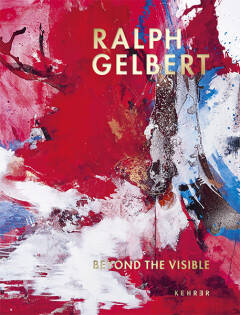
- Afhalen na 1 uur in een winkel met voorraad
- Gratis thuislevering in België vanaf € 30
- Ruim aanbod met 7 miljoen producten
- Afhalen na 1 uur in een winkel met voorraad
- Gratis thuislevering in België vanaf € 30
- Ruim aanbod met 7 miljoen producten
Zoeken
Omschrijving
Ralph Gelbert’s manner of painting is impulsive, ecstatic, and at times veritably Dionysian. We are dealing here with an art form that refers back to the body, to movements that do not rely on a previously developed concept, but rather follow a physical dynamism and sensual logic. Their art historical roots can be found in art informel, which developed in Paris in the 1940s and 1950s with the goal of liberating painting from its dependence on external reality and thus allowing it to come into its own, so to speak. Viewers of Gelbert’s paintings are made privy to the volcanic energies that have become manifested within them, a sheer delight in rich and at times flamboyant colors which flow out of them, become blurred, form clouds, vortices, and striations. Fantastical spaces emerge in his works, artificial worlds which are neither illustrations of existing sites nor subjective interior spaces. And what may for some appear to be ecstatic is due not only to spontaneous impulses, but also to calculation and discipline. As with calligraphies in the spirit of Zen, the impression of spontaneity and intensity presupposes a maximum degree of self-control. (Excerpt from: Hans-Walter Schmidt, Les Paradis Artificiels)
Specificaties
Betrokkenen
- Auteur(s):
- Uitgeverij:
Inhoud
- Aantal bladzijden:
- 128
- Taal:
- Engels
- Geïllustreerd:
- Ja
Eigenschappen
- Productcode (EAN):
- 9783868288582
- Verschijningsdatum:
- 30/07/2018
- Uitvoering:
- Hardcover
- Afmetingen:
- 240 mm x 300 mm
- Gewicht:
- 1000 g

Alleen bij Standaard Boekhandel
+ 72 punten op je klantenkaart van Standaard Boekhandel
Beoordelingen
We publiceren alleen reviews die voldoen aan de voorwaarden voor reviews. Bekijk onze voorwaarden voor reviews.











